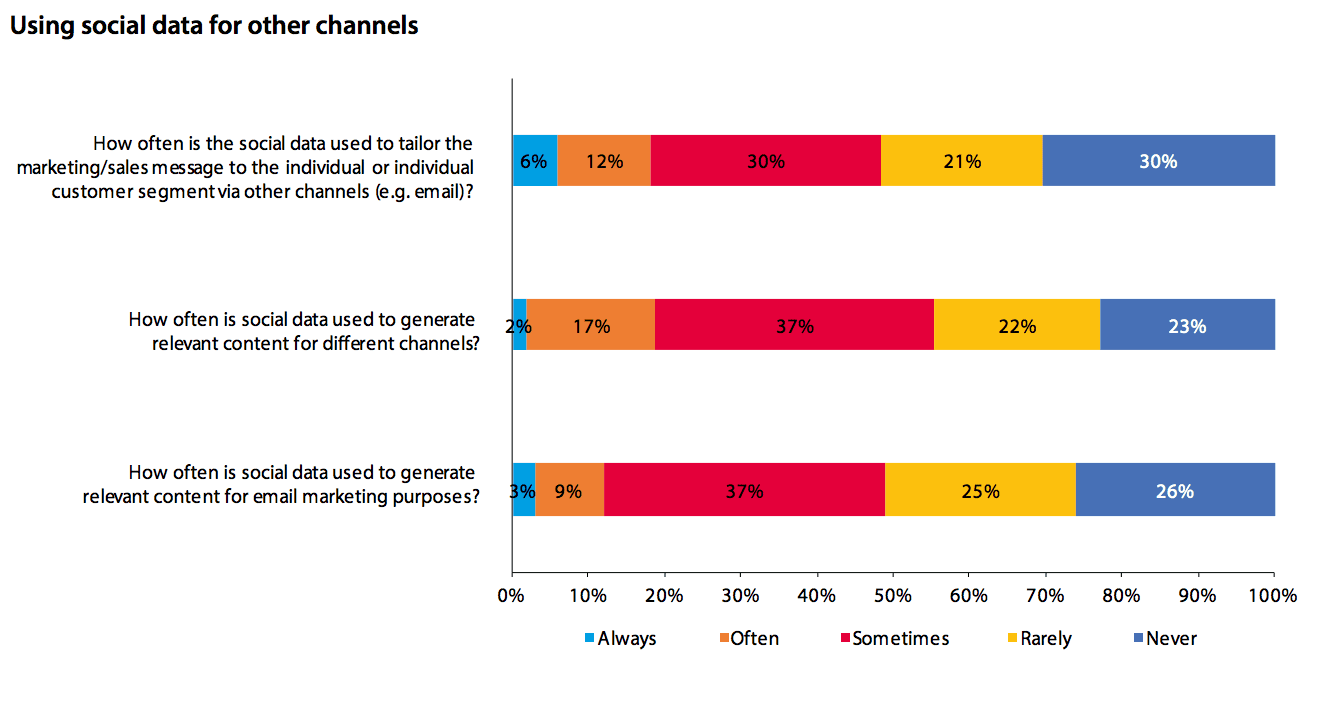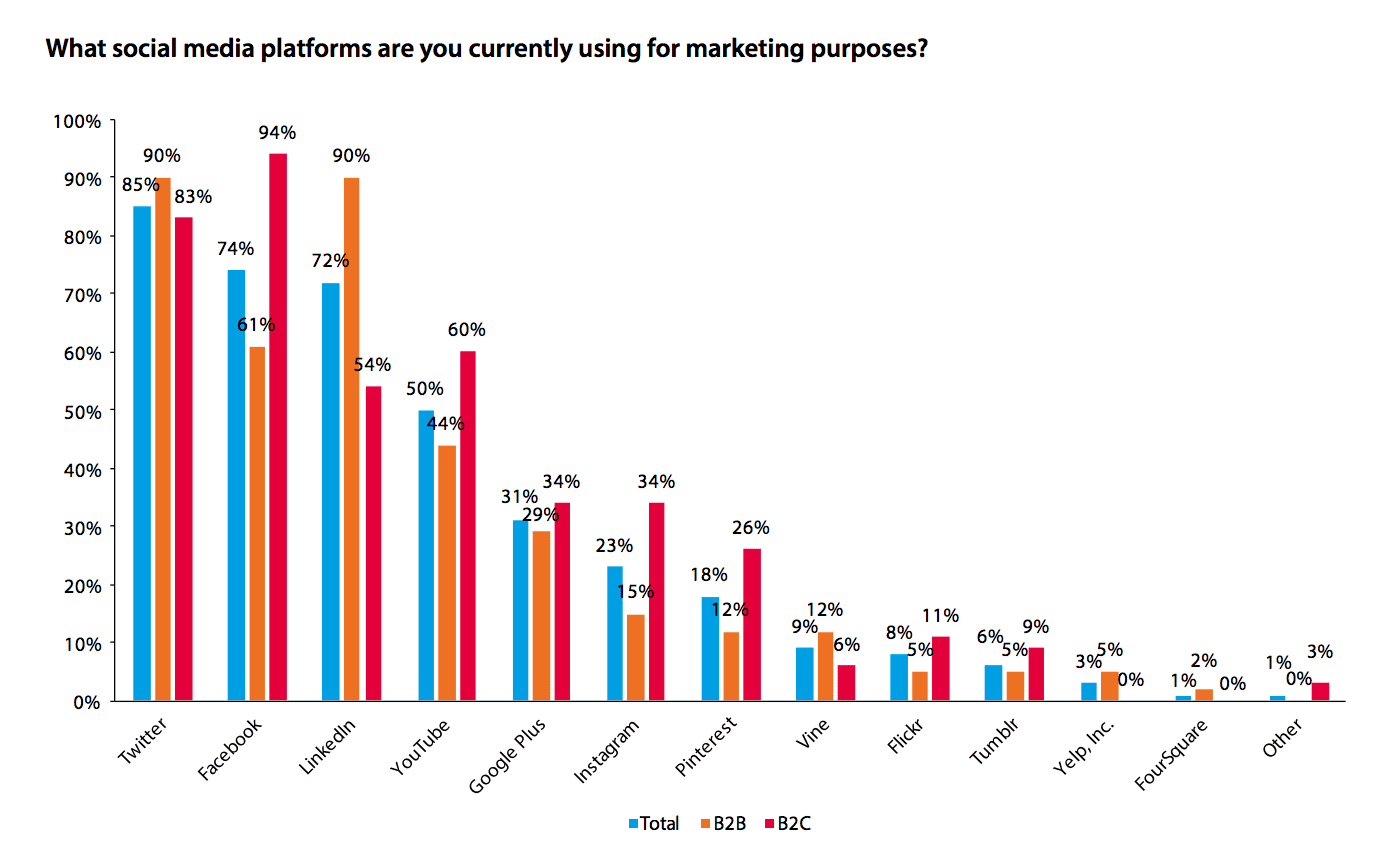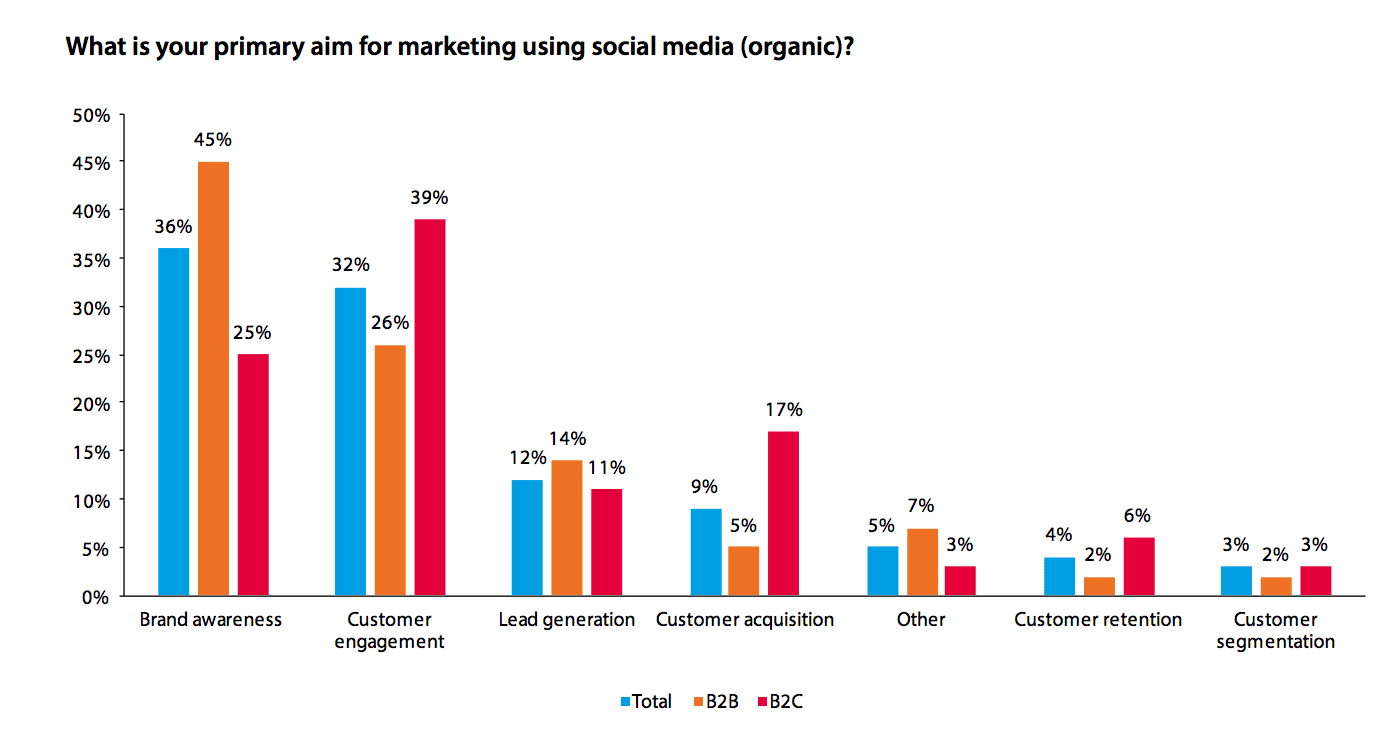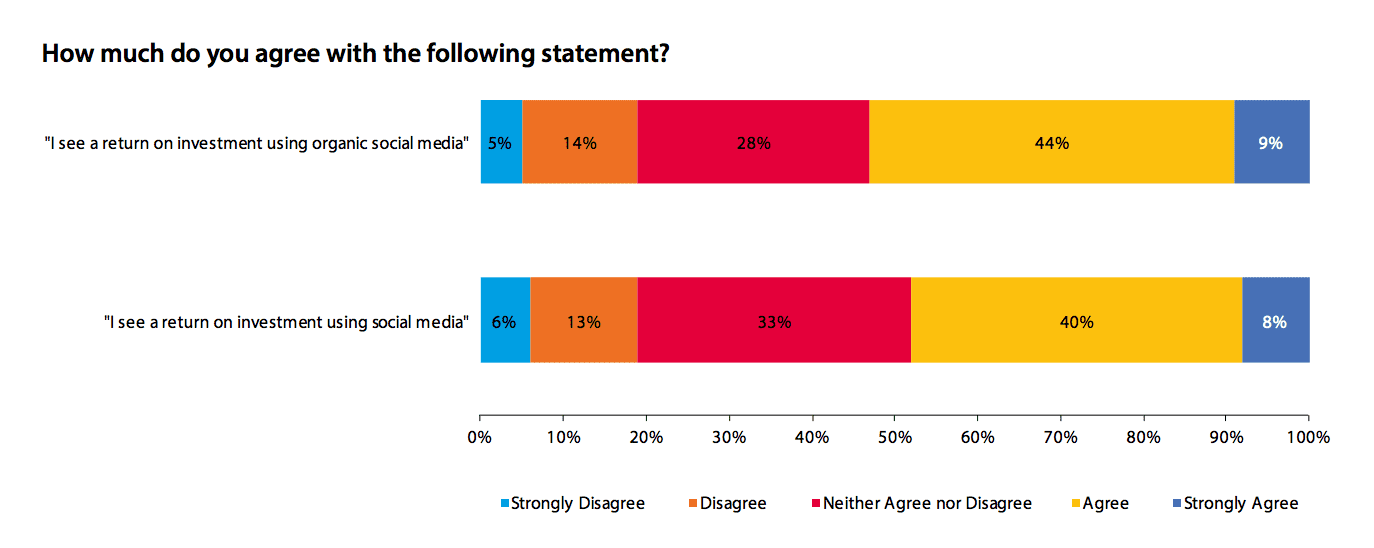New research from the DMA shows that only 48% of marketers agree that social media gives them any return on investment.
A report from the DMA on social media's place in marketing reveals some very interesting trends, but not all of them are positive. Although the vast majority (77%) of marketers are using at least one social network to promote their brand, that doesn't necessarily mean they are getting the most out of social or generating significant ROI from it. The research asked some 111 marketers from a mix of large B2B and B2C companies questions regarding their use of social media.
Which channels are used most for marketing?
As a rule of thumb, marketers will generally gravitate to the channels most effective for them. Twitter is number 1 primarily because the lack of any filtering algorithm means brands can be sure their posts will be appearing in follower's feeds without having to pay to increase reach. However, whether their followers will be paying any attention is a different matter. Facebook comes 2nd overall and first for B2C because it is the largest social network by a considerable margin, so it makes sense for brands to target it. Now that Instagram has overtaken Twitter in total active members I would expect to see it become far more popular with marketers, especially in the B2C area. Although it too has recently implemented an algorithm which will negative impact brands, it still offers a way to engage with customers that often prefer the newer, mobile first network to it's more established rivals.
What are brands using social for?
We've seen that almost all brands are using social, but what are their key aims? Interesting enough, they vary massively depending on whether the brand is engaging in paid or organic social activity.

The all-important question: is it generating ROI?
Interestingly organic fairs a little better than social media overall when it comes to perceptions of ROI among marketers. Only 48% of marketers said they see a return on investment using social media, a figure which suggests many are either failing to engage properly with the right platforms or are not able to measure social's impact very effectively. Fully one-third of respondents neither agreed nor disagreed with the statement, suggesting that they don't have a clear enough picture of the ROI of social to make an informed statement either way. This points clearly to the need for better use of analytics and attribution models among social media marketers, are too many are unaware of whether or not their activities are generating ROI.
How can I get more ROI from social?
The obvious way to improve your returns from social is to 'do social better'. A statement so glaringly true no one should need to say it. There are a million and one posts about how to boost engagement on social media, how to configure Facebook ads for better returns and so on and so forth. That isn't what this article is for, and it isn't what it is going to try to do. By all means, seek out and read those kinds of posts, but here I will suggest a way you may not have thought of for improving your social media.
Use social data for other channels
All too often the wealth of insights into your customers that social media provides is not utilised, or is used only when crafting social campaigns. This is a big mistake, the data can also be great for other campaigns like targeted emails or on-site messaging. 
source http://www.smartinsights.com/social-media-marketing/social-media-analytics/social-media-marketing-actually-generate-roi/



No comments:
Post a Comment